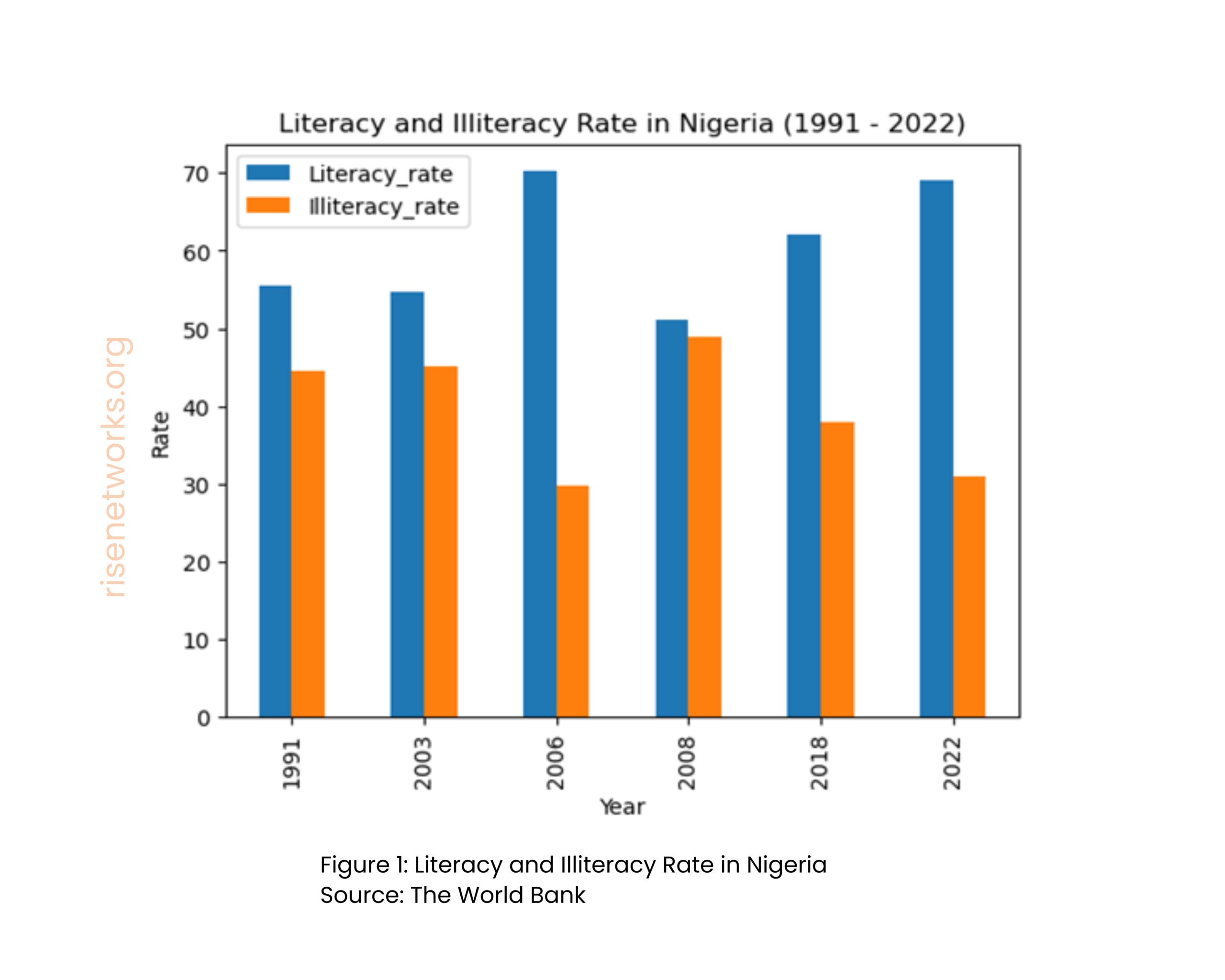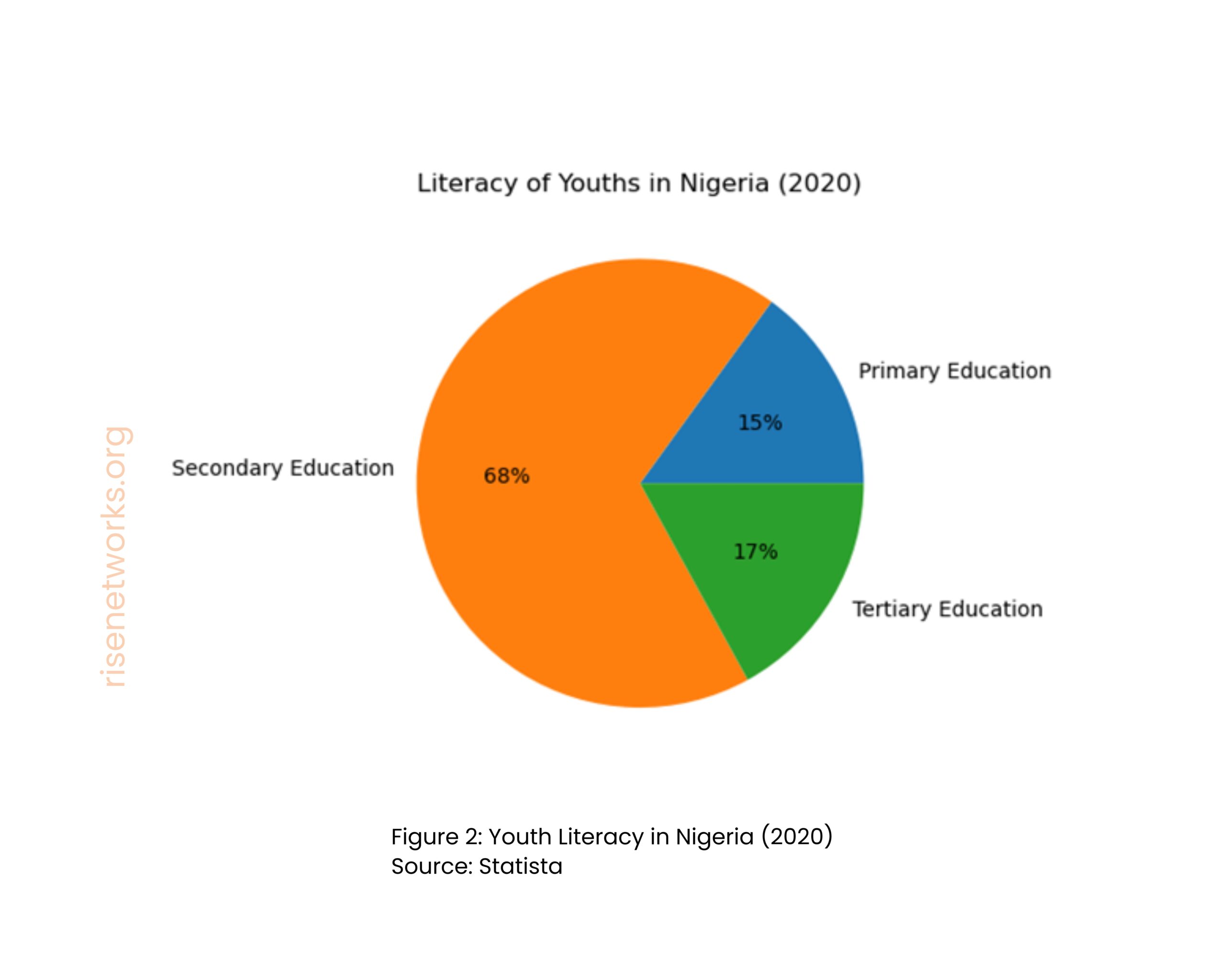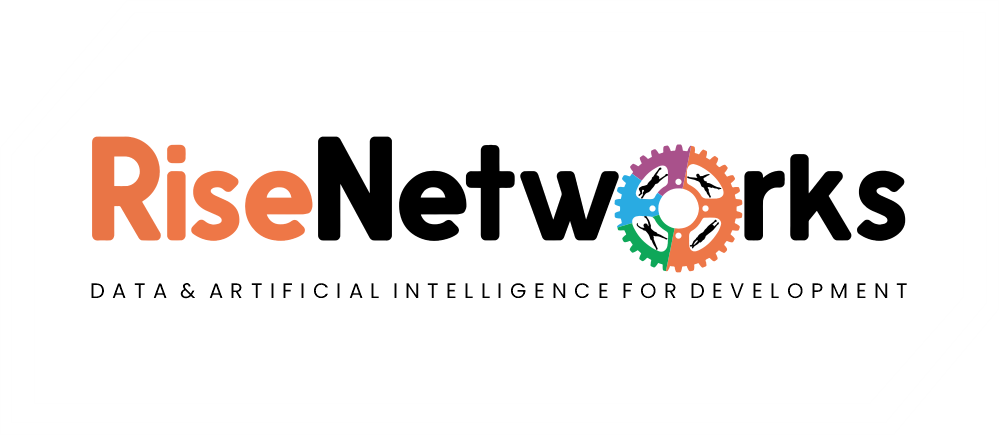Nigeria has made significant progress in increasing access to education which is justified according to records by the World Bank in November 2022 as cited by ZoeTalentsSolutions. Nigeria’s literacy rate was 62% in 2018 and grew to 69% in 2022. The Majority of youths (68%) in Nigeria have completed secondary education. Around 17% of Nigerian youths have received tertiary education while 15% have received primary education as recorded by Statista in the year 2020. There are about 20 million non-school-going children in Nigeria according to UNESCO. Sources from UNICEF say 18.5 million children were out of school in Nigeria by May 2022 and 60% were girls. According to Business Day, the illiteracy rate in Nigeria in 2015 was 38% which has dropped by 7% to 31% in the year 2022. This illiteracy rate indicates that Nigeria would need an average of 16 years to achieve a 97% literacy rate.

Case Study: UBEC’s Smart Education Initiative
The Universal Basic Education Commission (UBEC) recently launched the Smart Education initiative, aimed at harnessing technology to enhance teaching and learning outcomes in Nigerian schools. The initiative was conceptualized by UBEC to test the efficacy of the minimum standards in Universal Basic Education (UBE) delivery and provide lessons for progressively scaling up these standards in all schools in Nigeria over the next six (6) years. The initiative seeks to leverage digital technologies to improve access, equity, and quality in basic education. It aims to enhance teacher effectiveness, student engagement and learning outcomes through the integration of technology into classroom. The smart schools are located in Bauchi, Benue, Ekiti, Nasarawa, Niger, Kano, Kaduna, Kastina, Kwara, Osun and Oyo States.

|
Analysis and Insights Nigerian schools stand to benefit greatly from the Smart Education initiative’s transformation of the teaching and learning environment. The effort aims to bridge gaps in quality and accessibility while increasing teacher effectiveness and student engagement by utilizing technology to support traditional teaching techniques. However, major obstacles such as connectivity problems, infrastructural constraints, teacher capacity building, and sustainability considerations must be addressed for implementation to be successful. Furthermore, in order to avoid escalating already-existing inequalities, it is imperative to guarantee fair access to technology and digital resources. A major step toward utilizing technology to address persistent issues in Nigerian education is the Smart Education program. We may endeavor to create an education system that is more inclusive, equal, and high-quality for everybody by utilizing data and innovation. |
Rise Networks8 Adebayo Mokuolu Street, Anthony Village, Lagos,
|
You received this email because you signed up on our website or made a purchase from us. |

